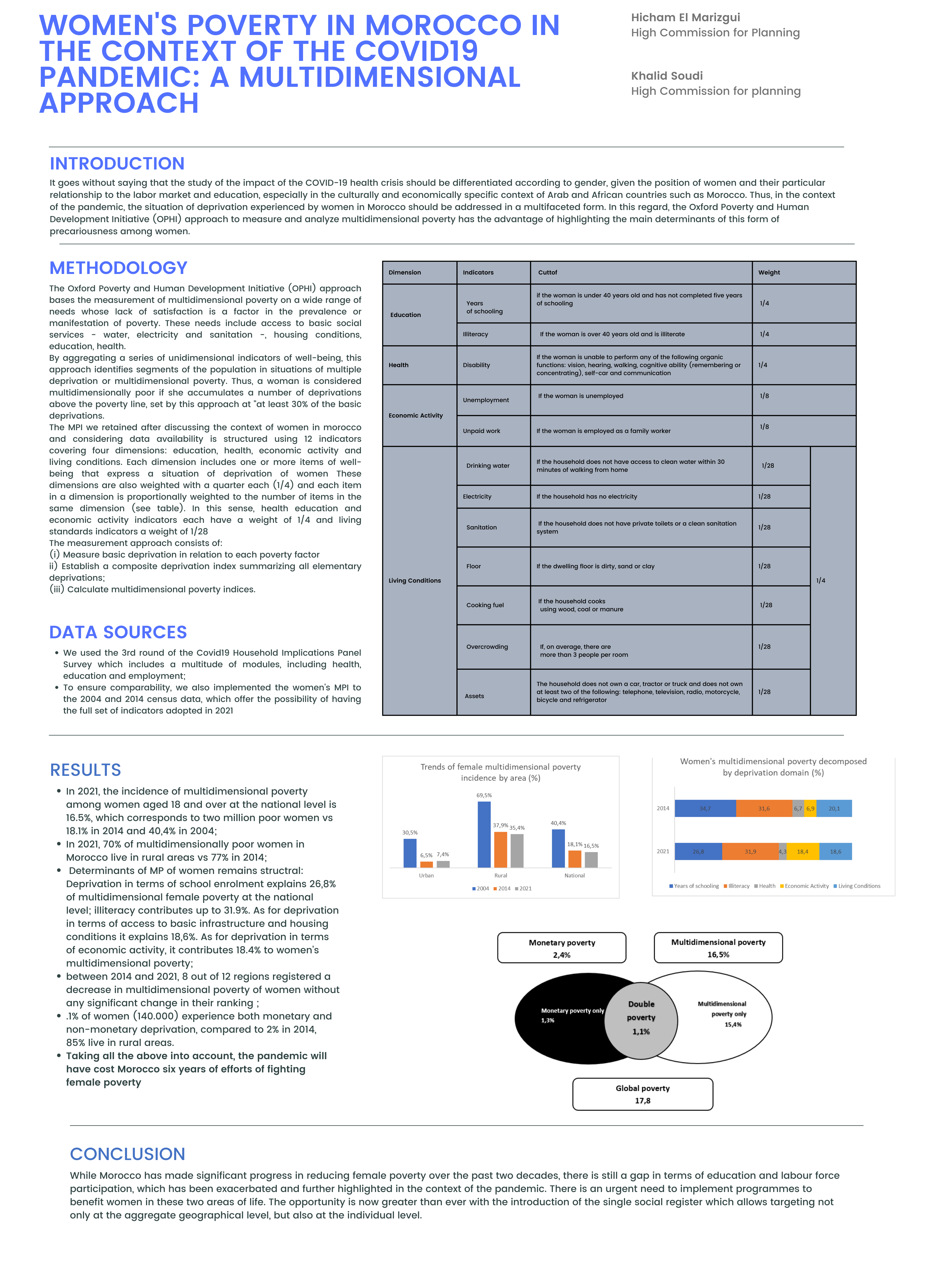Women's poverty in Morocco in the context of the Covid19 pandemic: a multidimensional approach
Conference
64th ISI World Statistics Congress - Ottawa, Canada
Format: CPS Poster
Keywords: covid-19, monetary, multidimensional, poverty, women

Abstract
It goes without saying that the study of the impact of the COVID-19 health crisis should be differentiated according to gender, given the position of women and their particular relationship to the labor market and education, especially in the culturally and economically specific context of Arab and African countries such as Morocco. Thus, in the context of the pandemic, the situation of deprivation experienced by women in Morocco should be addressed in a multifaceted form. In this regard, the Oxford Poverty and Human Development Initiative (OPHI) approach to measure and analyze multidimensional poverty has the advantage of highlighting the main determinants of this form of precariousness among women.
With reference to data from the 3rd round of the COVID19 panel on the impact of the crisis on households, and from the 2004 and 2014 population and housing censuses, it emerges that more than two million women over the age of 18 are in multidimensional poverty, i.e., 16.5% of the female population in Morocco, compared with 18.1% in 2014 and 40.4% in 2004. Although declining at the national, regional levels, the health crisis would have caused Morocco to lose nearly six years in the fight against female poverty.
Moreover, at the time of the pandemic, women's multidimensional poverty remains a predominantly rural phenomenon and its determinants are structural: educational deficits explain nearly 60% of the risk of suffering this form of poverty. Besides, the cross-checking of data on monetary poverty and multidimensional poverty revealed that 1.1% of women experience both monetary and non-monetary deprivation, compared to 2% in 2014.
